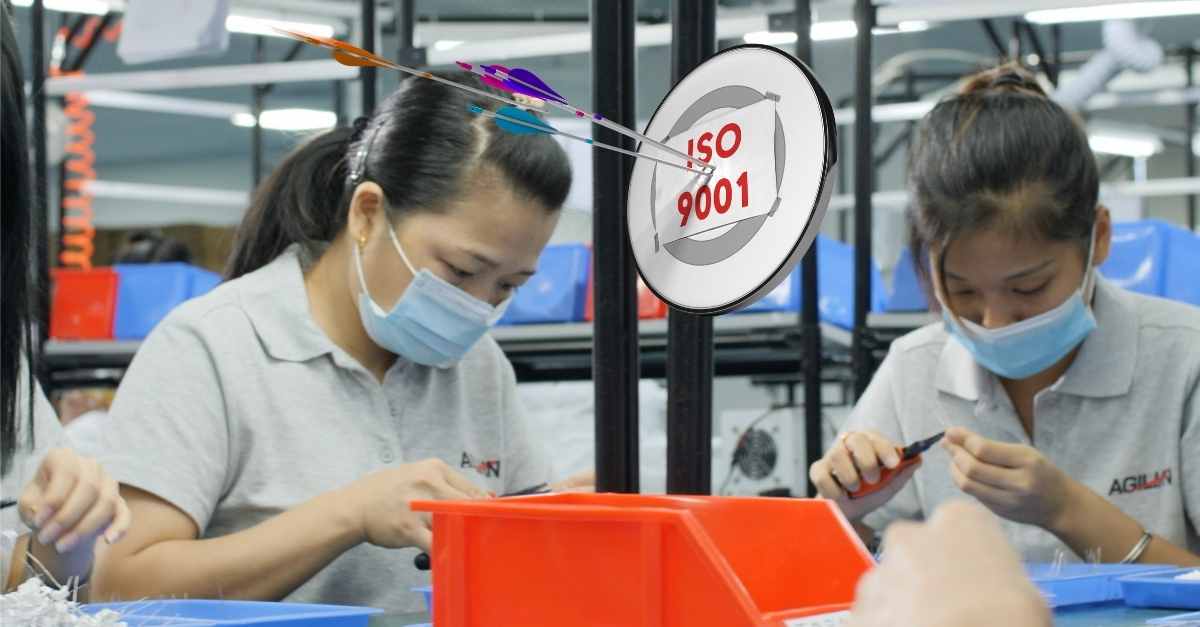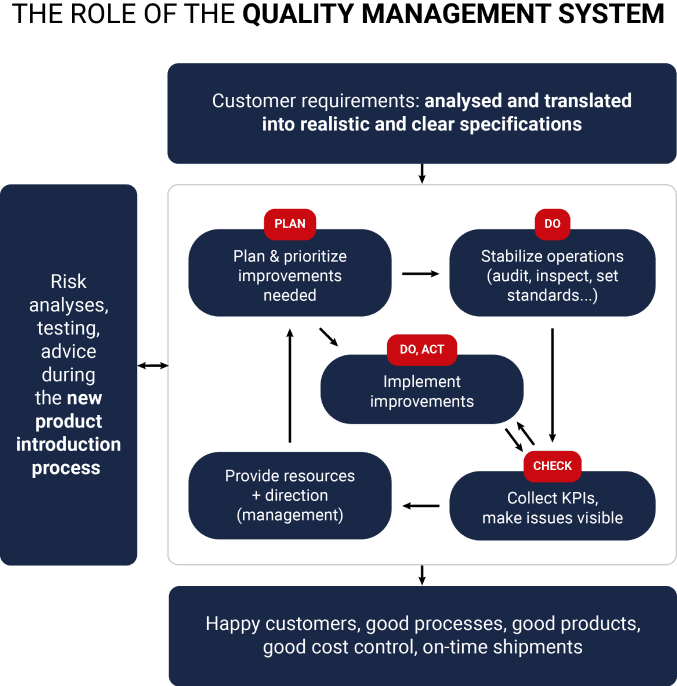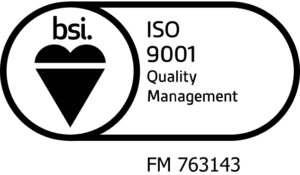
When we set up Agilian’s manufacturing activities, we focused on a Minimum Viable Quality Management System, to ensure we covered the major sources of risks and we had a clear way to improve over time. Here’s an explanation of how we’ve been progressing and what our recent BSI ISO 9001 certification means to you…
A focus on improvement
We focused a lot of energy refining our New Product Introduction (NPI) process, since most of our manufacturing work came from products we helped develop.
To support that NPI process, we defined an organization based on projects, with people from different disciplines who come together and are accountable for the project’s success. They follow the project along its industrialization and once it is in mass production.
We also had to develop certain internal competencies. For example, our customers expect their product to be made up to specifications (quality), but they also need it to keep working in its intended use case (reliability) without catastrophic failures that might harm people (safety). We developed a performance & reliability testing lab, we hired an expert in reliability engineering, and we developed our experience in safety testing & certifications.
In parallel, we got better at helping our customers explain what their quality standard is. With examples, and a relatively simple form that covers the most important topics. That is really the foundation of any effort at making good products…
We kept improving the core parts of the quality management system, as shown below:

Obviously, those projects that will lead to larger orders, and that come with a higher budget for pre-production work, are given a lot of process & quality engineering attention (in-depth risk analyses, process control plans…). But the more recent focus has been on upgrading the way we work for all customers.
In parallel, our CTO and his team have been developing our own ERP system from scratch. It is now mature enough to control our quality systems and align them with our business model. As a backstory, we looked into a number of existing ERPs and, after much deliberation, decided we were better off developing this tool from scratch with our own team. We wanted a tool that fits our approach and our processes, rather than the other way around.
We also pulled resources from other parts of our group. For example, our inspectors have been using the mobile application developed for another business unit in our group, to present complete reports very fast. And project managers from our Supply Chain Management BU have used their extensive sourcing experience to help identify suitable component suppliers.
Pulling it all together into ISO 9001 certification
At one point, we decided to put all this together in our business management system (no, ISO 9001 should not just be about quality) and we formalized support processes such as document control, internal audits, management reviews, etc.
Since we were ready for an ISO 9001 certification, we invited the British Standards Institution (aka BSI, and one of the premier certification bodies) to come and certify Agilian. They came three times and, with no non-conformance, issued our official certification. It is an independent confirmation of the good systems we have put in place.

What’s next?
However, this is only one step in our continuous improvement journey. We are, in parallel, working on improvements to certain areas of our quality systems, but also on keeping our customers’ information secure and on minimizing our activities’ impact on the environment.



